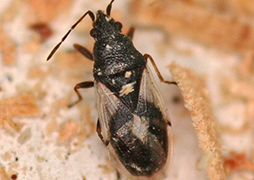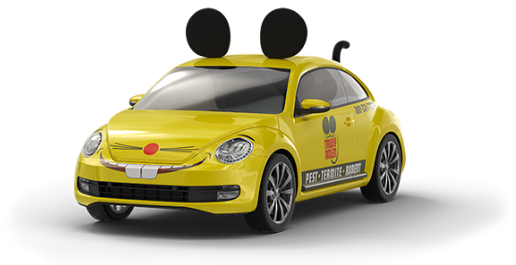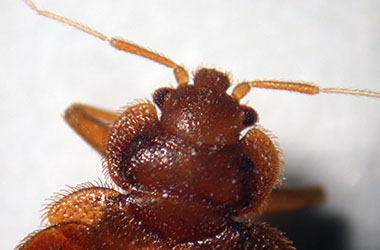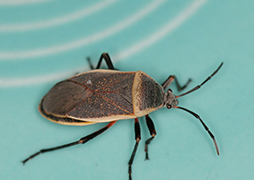
Bug Behavior
Most people use the word “bug” when talking about insects like beetles, bees, and butterflies, and other small, many-legged creatures that crawl, jump, or fly, such as spiders and centipedes. Although for scientists, the word “bug” does correspond with a very specific group of insects – and not all insects are bugs. Of the millions of insect species on earth, only about 50,000 are true bugs. In the scientific world, a “true bug” is classified as an insect species that belongs to the order Hemiptera, including bed bugs, fire bugs, and some water bugs. Insects in this order are different from insect in other orders, such as those for ants and bees (Hymenoptera), butterflies and moths (Lepidoptera), or flies and mosquitoes (Diptera).
True bugs include insects such as leafhoppers, aphids, cicadas, stink bugs, water bugs and bed bugs. They have many of the same parts as other insects in that they have an exoskeleton, segmented bodies, and six legs. However, when they reproduce all true bugs hatch from their egg as a miniature version of the adult bug. The front wings of true bugs are thickened and colored near where they are attached to the insect’s body, and are clearer and thinner towards the hind end of the wing. It is important to remember that all bugs are insects, but not all insects are bugs.
The key difference between true bugs and other insects is their mouthparts. True bugs have specialized mouthparts that look like a long beak and work much like a straw to suck juices, allowing them to move food from the source to their mouth. A plant-feeding true bug pierces the leaf, stem, or other plant part with its beak and sucks the plant juices up its food channel. Many bugs feed only on a certain kind of plant. Mostly they suck fluids from plants, but there are some true bugs, like bed bugs, that feed on animals. In addition to plants, some bugs feed on algae and fungi.
- How to Get Rid of Them
- Infestation
- Bites and Treatment
4 Seasons Pest Control

Satisfaction Guarantee
What it includes*
-
Ants
-
Crickets
-
Fleas
-
Mice
-
All Roaches
-
Scorpions
-
Spiders
-
Ticks
-
Wasps
-
Other*



